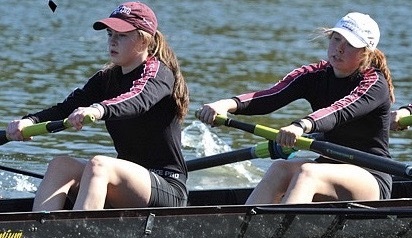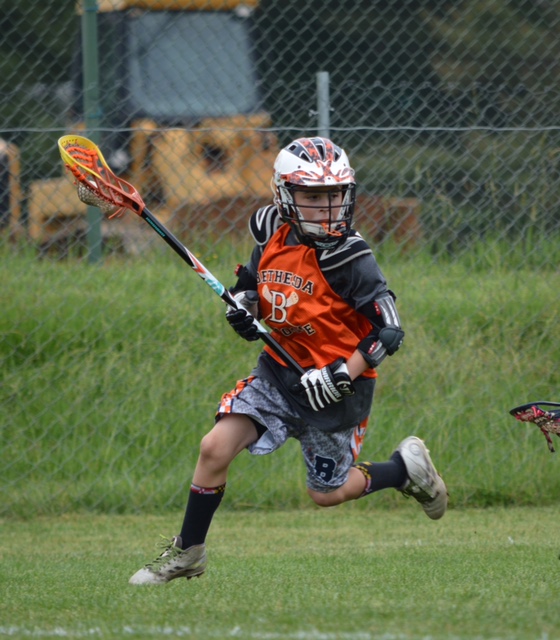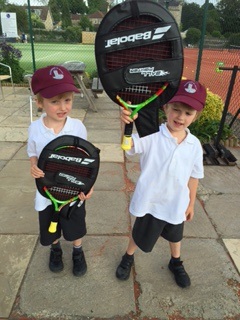 Playing sports is a huge part of many people’s lives. It’s a great way to stay active, meet people, and have fun. Whether you’re on the field, in the pool, on the track, on the court, or on the water, there can be different obstacles to hearing. Therefore, it’s important to let your coaches and teammates know how best to communicate with you in order to maximize your and your team’s success.
Playing sports is a huge part of many people’s lives. It’s a great way to stay active, meet people, and have fun. Whether you’re on the field, in the pool, on the track, on the court, or on the water, there can be different obstacles to hearing. Therefore, it’s important to let your coaches and teammates know how best to communicate with you in order to maximize your and your team’s success.
Athlete and Cochlear summer intern Kelin M. provides tips below:
1. Foster open communication: As in most situations, you should tell your coaches and teammates about your hearing loss sooner rather than later. Many people do not have a personal experience with hearing loss or hearing implants, so they often don’t know how best to optimize access to communication.
It’s important to establish open lines of communication between you, your coach and your teammates. This is important not only for you to have the best hearing experience possible but also for the team to perform better as a unit.
2. Hold conversations in a way that’s comfortable for you: When it comes to talking to your coach and teammates about your hearing loss, you can do so a number of ways. Some prefer to talk to each coach or player individually about their hearing loss as it comes up, while others choose to speak to their coaches and teammates as a unit early on in the season.
Either way can be effective. However, whichever way you choose, it is important to speak about your hearing technology, how it works, any possible boundaries to hearing, and suggestions for how your coaches and teammates can help you create an optimal hearing environment.
3. Outline your optimal hearing experience “on the field”: Everyone has different ways to make his or her hearing experience better. It’s important though to mention that you may have to ask for repetition and that you might need some extra help here and there. It’s also important to stress that you wish to be treated just like everyone else on the team: after all, you’re there for the same reason they are—to play a sport.
4. Tailor your hearing experience conversation around the sport at hand: What you talk to your coaches or teammates about more specifically may vary by sport.
For those who play field sports, such as soccer, lacrosse, field hockey, baseball, football, etc., wind or noisy fans can be significant boundaries to hearing. A good way to navigate this is by getting close to your coaches when they are giving instructions and by having your teammates act as messengers, passing on suggestions or plays from the coaches while you’re on the field. If necessary, ask to move indoors or to a quieter area while the coaches relay important information to ensure that you don’t miss anything.
For sports taking place in a noisy gym or arena (basketball, tennis, volleyball, ice hockey, etc.) where fans are yelling and sounds echo, any player—hearing loss or not—can find it difficult to hear. For many basketball players, an effective mode of communication is through designated hand signals for different plays. This tactic is often useful for everyone on the team.
In rowing and similar water sports, it is important that athletes with hearing loss make sure they can hear both the coxswain and coaches while in the boat. In order to do this, rowers may need to request that the speaker system in the boat be turned up or that the coach not use a megaphone in order for you to read his or her lips.
5. Utilize wireless accessories to enhancing your hearing experience: Many athletes with hearing implants have had great success using the CochlearTM True Wireless Mini Microphone. You can have your coach wear the Mini Mic during practices and games, allowing their voice to stream directly to your processor, even if you’re in the water swimming (with an Nucleus® Aqua+, of course!).
Additional items to consider with coaches and teammates:
- If you rely on lip-reading, ask people to face you when talking.
- Ask coaches to go over drills beforehand, or ask for a visual example or practice run.
- Turn off any music that is playing while coaches or trainers are giving instructions.
- Know it’s always ok to ask for clarification or repetition if needed.
For parents who may be speaking to coaches on behalf of their young athlete, it is often helpful for coaches to know before the season starts, that way they know beforehand how to best interact with their players. You can even send additional information, visuals, or resources to coaches or teammates via email, just as you might for teachers or classmates. To see an example of what this may look like, click here.
We wish you or your little Cochlear competitor success in all your athletic endeavors!

